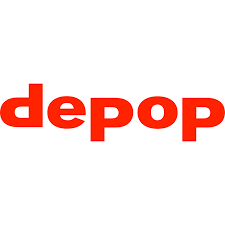Contents
SUMMARY
Depop is a London‑based social marketplace founded in 2011 that specialises in second‑hand and vintage fashion. With a user interface reminiscent of Instagram, the platform enables peer‑to‑peer buying and selling of preloved clothing, accessories and unique streetwear. A subsidiary of Etsy since 2021, Depop has remained a distinct brand celebrated by Gen Z and young millennials for its emphasis on sustainability, creativity and community‑driven style.
HISTORY
In 2011, Simon Beckerman conceived Depop whilst working at the Italian fashion and culture magazine PIG, with the ambition to build an online counterpart to the magazine’s creative features—essentially a digital flea market. The app was developed with support from the incubator H‑Farm in Roncade, Italy. By 2012, after gaining seed investment from Paolo Barberis and Nana Bianca, Depop moved its headquarters to London, marking the start of its global expansion. Subsequent investment in 2013 (circa €1 million) and further funding from Balderton Capital and HV Capital followed in 2015.
In 2014 Apple featured Depop on its App Store homepage, dramatically boosting visibility. Celebrities and influencers—such as Emma Chamberlain and Chiara Ferragni—began using the platform, cementing its cultural relevance. A turning point was the Series C round in June 2019, when Depop raised US $62 million from investors like General Atlantic, alongside existing backers, to support expansion in the US and beyond. Concurrently, the platform experimented with pop‑ups (including a partnership with Selfridges in London) and workshops to engage its creative community.
2021 saw Etsy acquire Depop for approximately US $1.6 billion, the largest acquisition in Etsy’s history at the time. Despite the acquisition, Depop has continued to operate as a standalone brand. CEO changes followed: Maria Raga stepped down in 2022, succeeded by Kruti Patel Goyal, and in August 2025, Peter Semple—formerly CMO—assumed the CEO role.
VISION
The founding vision of Simon Beckerman was to merge fashion, creativity and social media in a platform where users could buy and sell from their personal style narratives—essentially “Instagram with a buy button.” This dream was rooted in empowering creative self‑expression through tangible items. Maria Raga, who served as CEO from 2016, envisioned Depop as a platform for crafting a new generation of teen entrepreneurs. She emphasised community empowerment and inclusivity, seeking to democratise fashion and challenge elitist norms. Under Kruti Patel Goyal’s leadership, the vision evolved to deepen the brand’s commitment to sustainability, circularity and long‑term growth. She strived to make second‑hand fashion the aspirational default for Gen Z—balancing style, value and environmental responsibility.
MISSION STATEMENT
Depop’s mission is to make fashion circular by facilitating second‑hand purchasing that is both accessible and inspiring, encouraging users to extend the life of clothing while expressing unique style. Central to this mission is the empowerment of a creative community—sellers and buyers alike—where trends are born from within rather than dictated from above. Depop positions itself as a space where users “create new from old.” As part of Etsy, Depop’s mission incorporates long‑term sustainability and profitability. Strategic measures such as removing fees (in the US for sellers and UK more recently), deploying AI‑driven trend recommendations, and enhancing user experience aim to sustain growth while supporting the brand’s eco‑ethical aspirations.
EXECUTIVE BOARD
- Simon Beckerman – Founder (Chair or non‑executive role post‑founding)
- Maria Raga – Co‑founder; CEO until 2022; former Vice‑President of Operations
- Kruti Patel Goyal – CEO (appointed 2022), formerly Chief Product Officer, Etsy
- Peter Semple – CEO (appointed August 2025); previously Chief Marketing Officer at Depop
PRODUCTS AND SERVICES
Depop offers a curated peer‑to‑peer marketplace where users sell preloved fashion, vintage, streetwear and designer pieces. Its interface mimics Instagram, with feeds, follows, hashtags and an “Explore” page to discover emerging trends and popular listings. Additional services include in‑app payments via Apple Pay, Google Pay, cards and Klarna, integrated dispute resolution and refund support. In the US, selling fees were removed in 2024 (though payment‑processing fees remain), and in the UK, selling fees were eliminated under Kruti Patel Goyal’s leadership. Depop has also run physical initiatives such as pop‑up stores (e.g., in Selfridges) and the “Now/Next” incubation programme for rising Black US sellers. These services deliver both commerce and creative exposure, nurturing new fashion talent emerging from the platform.
AWARDS AND RECOGNITION
While Depop may not emphasise formal awards, it has earned cultural acclaim: in 2019 it was voted teenagers’ favourite resale site, and by 2023, its user base had grown by 17% to around 35 million, reflecting its resonance with Gen Z and millennials. Media recognition includes frequent coverage in outlets such as Time, Wired, Vogue and The Atlantic for making circular fashion aspirational and for championing new creative entrepreneurs. Depop is widely cited as an incubator for emerging designers who began as resellers on the platform. Industry commentary credits Depop with catalysing movements like cottage‑core and Y2K revival, elevating sustainability trends among youth, and facilitating the rise of digital fashion micro‑entrepreneurs. Its acquisition at US $1.6 billion by Etsy underscored its market success and cultural impact


